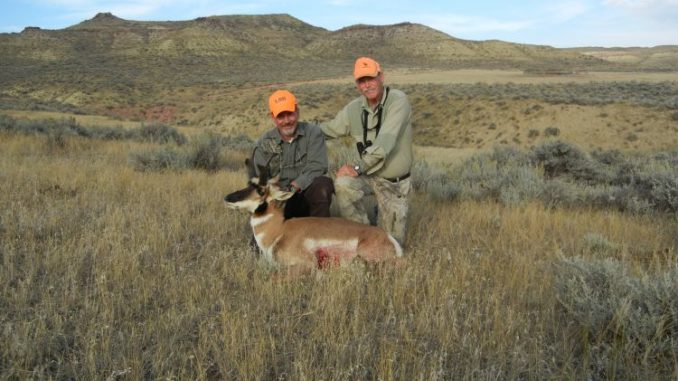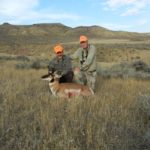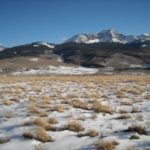
Everything was going just fine until I felt some heartburn and a little acid indigestion. It’s rare for me but not unheard of. Then things got worse — and in a couple of days I was in the emergency room and pretty sick.
Five days, two procedures and five units of blood later, my bleeding ulcer was under control and I was home recuperating. A lot of things went through my mind during that rough patch. One of them was what if I had been up on a mountain out west on my annual fall elk hunt.
Our little group of hunters usually goes to the same area, but we have no idea where the nearest medical facility is located. We don’t know how long it takes to get there. We don’t know about local EMS and med/flight capabilities. Last but not least, we don’t even know what, if any, coverage our medical insurance provides outside Louisiana.
And I’m willing to bet the majority of hunters travelling out of state (and outside of the USA) to hunt in remote and unfamiliar areas don’t know, either.
So before we hit the road on that long-anticipated hunting adventure, let’s take a look at some emergency contingencies. We can also develop some basic plans and procedures to deal with emergencies arising either at home or abroad.
The top of the line protection for the adventure hunter is a rescue travel insurance policy. They are offered by companies such as Ripcord (ripcordrescuetravelinsurance.com) and Global Rescue (globalrescue.com/sportsafield). They aren’t cheap, and most of us probably think of this as an option used only by the well-heeled, pursuing ibex in Baluchistan or something similar. But plains safaris in Africa have gotten so reasonable they are in many cases less expensive than backcountry elk hunts, making them available to the average breadwinner. Those of us considering leaving U.S. soil for overseas hunts might want to look into a travel policy.
Out west, licensed outfitters deal with clients of all ages and physical capabilities. This fall will be trip seven with my friend and outfitter Roy Hutt. I’ve watched Roy size up first-time clients, and he’s pretty good at evaluating physical condition and tailoring the hunt to the hunter. Some may do no more than take one step out of the truck and have a seat on the edge of a clearing. Others in better shape may spot and stalk, involving some hiking on a hill. Roy keeps an oxygen tank and first aid kit on hand, and I’m sure he knows the way to the hospital. But it won’t hurt to go over emergency plans with your outfitter just to be sure.
DIY hunters need to make their own emergency plan. A CPR course prior to the trip is a great idea, and be sure to include a good first aid kit with your gear. Take the time to locate the medical facility nearest you. If hunting in wilderness or remote areas, determine where EMS could link up for ground transport. Call the wildlife department and speak to the local wildlife officer to ask about med/flights and backcountry rescue capabilities.
Cellphone coverage is spotty to non-existent in many areas. Upon arrival at camp, find out if there is any cell service. If not, determine where you can go to get it. For a while we hunted in an area where we had no service in camp. But a short drive out to a county road and up the hill to a turnout gave us a reliable signal.
Those of us on prescribed daily medications, or with physical conditions such as diabetes which require daily monitoring, need to carry enough medication and supplies to last well beyond the expected length of stay. Members of the group with heart, diabetic or other dangerous conditions need to make others in the party aware, and provide instructions in advance on what to do should they become ill or lose consciousness.
And we need to be just as well prepared when hunting here at home. Our hunting lease has a main camp where we keep a daily entry log book. Hunters sign in and list their location for each morning and evening hunt. We know where everyone is — and where to look if they don’t show up. Fortunately, we have never had to go locate a sick or injured member, but we sure have found some guys who were stuck in the mud or broke down and needed help.
Finally, see your doctor and have a physical before hunting season. Ask about getting in better shape if you need to, and follow your doctor’s instructions on how to go about it. Above all, don’t overexert yourself by trying to drag or pack out a heavy animal — especially at higher elevations.
So enjoy your hunt — but be prepared to deal with the unexpected. Good luck.
Got a question? Ask Keith!
If you have a question about wildlife and fisheries enforcement, shoot a note to Keith LaCaze at klacaze15@att.net.




